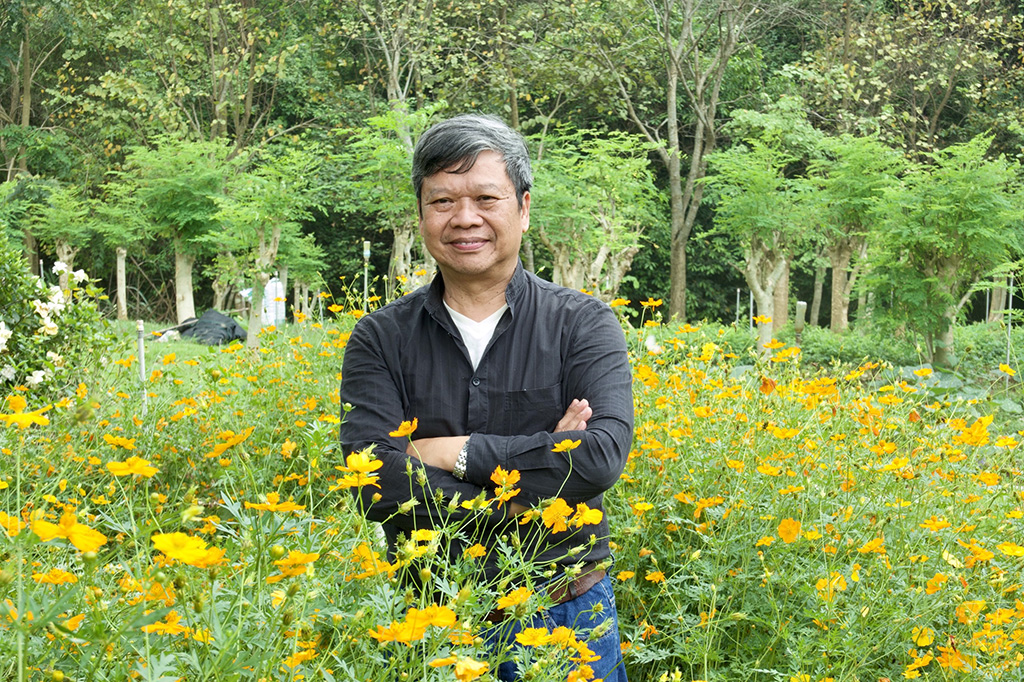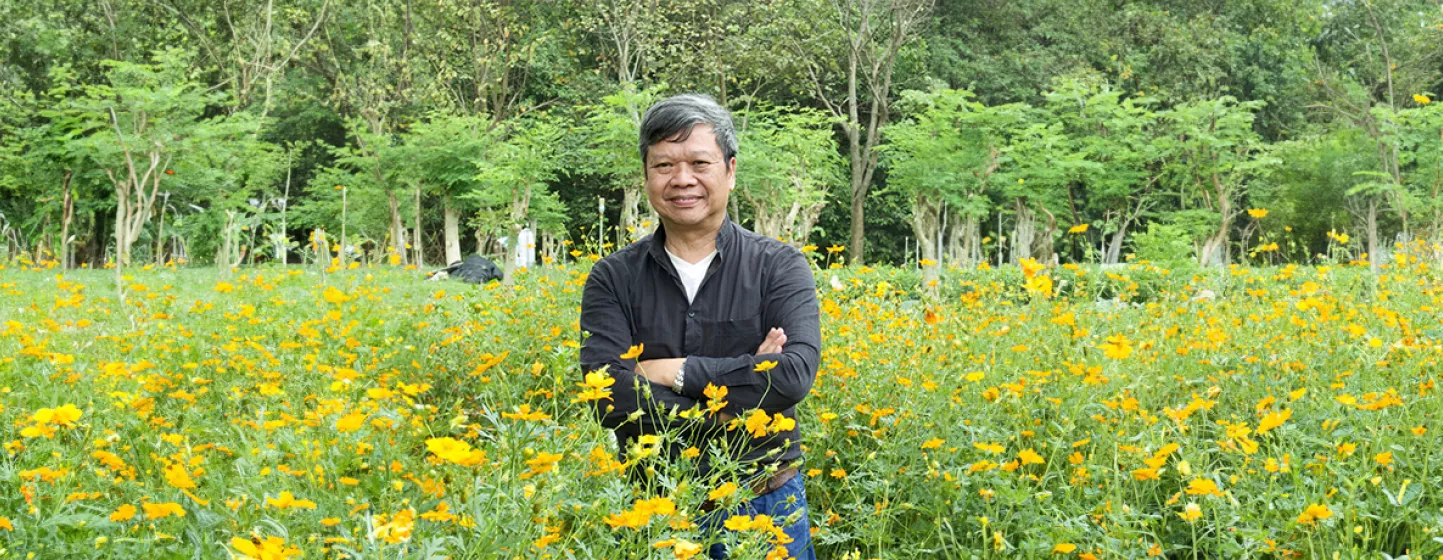“Nothing but the truth” for trainer, Vu Duc Khuynh
At 67, Vietnamese journalist, Vu Duc Khuynh, is “curious about everything” according to those who know him well, and continues to train the younger generation. He is looking forward to sharing his experience again soon as part of the Media for One health project.
Not always the whole truth, but nothing but the truth. “In my career, even if sometimes I couldn’t tell the whole truth, I can at least say that I’ve never lied!” boasts seasoned Vietnamese journalist Vu Duc Khuynh, 67.
Born into a family of seven children in New Caledonia, Khuynh was 7 when he returned to Vietnam in 1964, where he discovered war and poverty. “He was in our house in Hanoi when it was bombed... Luckily, he was safe, but we still have a photo of him walking through the rubble... When he was young, he watched a lot of war films and dreamed of joining the army to fight on the front line,” recalls Thi Yen Vu, his little sister.
In 1976, after the war, another door opened. “The government needed managers. After high school, I studied for six years in the USSR (editor’s note: Union of Soviet Socialist Republics, formerly the Eastern Bloc) and qualified as a Russian and French interpreter. I then undertook further training courses in the audio-visual field in France.” The result is a passion for television journalism and a distaste for lies: “In Russia, I felt like a victim of propaganda. When I returned to Vietnam, I started working for the national TV station. Normally, you had to be a member of the Communist Party to have a successful career, but I remained outside the party until I retired.”
“Avoiding fake news”
Khuynh worked in a variety of departments in Vietnamese television: photojournalist, international relations, reruns of programmes from the USSR and France, “portraits of life” column and then creating a French-language newspaper. “I was responsible for the content, but nobody could censor us as very few people working for the state television station spoke French!” laughs the mischievous journalist in impeccable French.
Khuynh went on to develop his skills as a documentary film-maker and trainer. “Professional and very flexible, he likes to interact and make the young participants in his training courses laugh to help bridge the gap and facilitate their learning,” appreciates Van Anh Le, departmental head at the Vietnamese journalist training centre, where “Chú” (uncle) Khuynh has been working since 2017.
The modest uncle puts things into perspective: “I’m just sharing my experiences as a journalist. I love doing this, even if it’s not easy. For example, for the Mekong: Sustainable News project, I did a lot of research before the training sessions on air pollution, and I brought in specialists. The new Media for One health project represents another challenge. I’m going to work with specialist journalists to avoid spreading fake news that confuses journalists, doctors, the authorities and the general public, as was the case for Covid-19.”
Portrait by Emmanuel de Solère Stintzy (Journalistes Médiateurs)

*The “One Health” approach invites us to think differently about health, recognising the interdependence of the wellbeing of humans, animals and the ecosystems they share on our one planet. It uses the close and interdependent links between these three facets to develop new methods for monitoring and preventing disease (source: World Health Organization).
